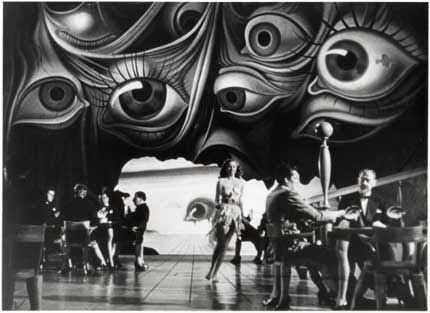Nothing illustrates that better than the fact that a conference on how to shape media coverage of Academia couldn't even manage to shape media coverage of itself. The only significant media attention the Worldviews Conference received was about Bill Ayers, Barack Obama's Weather Underground terrorist friend, being barred entry to Canada to attend it.
It was almost startling to watch the assembled eggheads who purport to have some knowledge of the subject appear perplexed about why the press isn't more anxious to effectively act as a public relations arm of academia. Particularly, some of the worst examples of academia like conference sponsors OISE and York University, both notorious for being institutes where activist ideology trumps education.
 |
| Want media atention? Try this! |
The media gives university affairs coverage when it satisfies one or more of those categories. As an ironic example of that, Toronto's Globe and Mail newspaper, another conference sponsor, devoted most of its sparse coverage of the conference to ruminating on a recent scandal at The University of Alberta where the Medical School Dean was accused of plagiarizing a convocation speech.
The tone of undeserved self-congratulation that pervaded the conference was exemplified in one seminar where a professor from the Ontario College of Art and Design discussed how she and a team had developed, with grant money, an application for people with brain injuries resulting in amnesia and memory loss. These people often cannot remember people they have met, nor can they recall their emotional response to those people, and have to relearn it on each encounter. Her team developed an application that allows amnesia victims to create a diagram with squiggles and colors of the sort the Jackson Pollack would have painted while hung-over. These diagrams are supposed to convey the emotional response they have to different people that they can refer to during encounters where their memory fails them.
At the end of the seminar, I asked the professor if the amnesiacs for whom she created the application also lost the ability to read English. She shook her head and said no. So I asked the first thing that popped in my head when she mentioned her invention. Wouldn't it make more sense to write down a note like "Bob Smith - hate him, tells boring stories, but throws good parties" rather than have to rely on some vague and hard to interpret abstract design to convey less precise information?
She then commenced an articulate, intelligent and lengthy response, from whose first sentence it was obvious I was being fed a line of BS. Not that it matters; the grant cheque cleared and was spent a long time ago.
The conference wrap-up was more evidence that the relationship between the media and universities will be a relationship on terms that neither can dictate nor seem to appreciate. Titled The role of media and higher education in promoting democratic culture, it was evident that academics think the media should be a tool for promoting the Academy's particular notions of democratic culture. Given the heavy Marxist influence in universities, that might not be such a good thing.
I suggested to the panelists that universities take public funds, yet remain almost unique in the way they hold themselves unaccountable for it. One of the critical aspects of a democracy is the right of the public to know how their resources and taxes are being used. No other publicly funded institutions (with the possible exception of the CBC) could take tax money, and when confronted with a scandal, refuse comment and not provide transparency. Yet universities do that regularly, and all the while lecturing everyone else about how democracy should work.
The panelists response fell back on the lazy, staple argument of "academic freedom," without seeming to appreciate that transparency and academic freedom are not necessarily incompatible. But they do have reason not to be entirely forthcoming. Academics understand that if the public had better knowledge of what was being taught in some programs, universities' decision-making processes and how public funds were used, public outrage would lead to irresistible pressure for major reforms in the university system.
The Worldview Conference's goal of finding a way for universities to better exploit the media to spread their message is unlikely to be achieved any time soon. Until academics and university administrations appreciate that hypocrisy, secretiveness and self-indulgence are poor platforms to stand on to pontificate about democratic reform, the relationship between the media and the academy will continue to be as adversarial as it is cooperative.

No comments:
Post a Comment